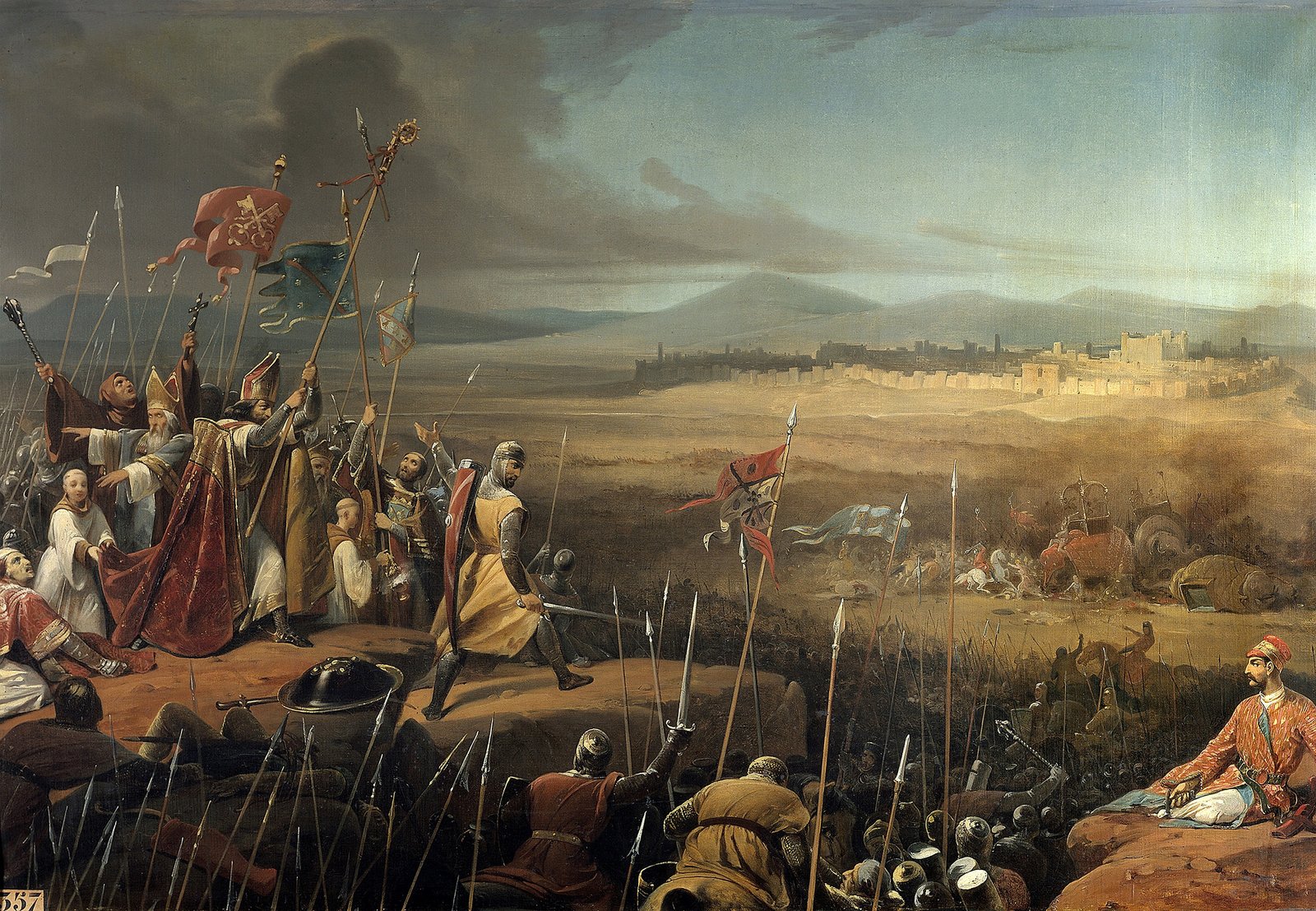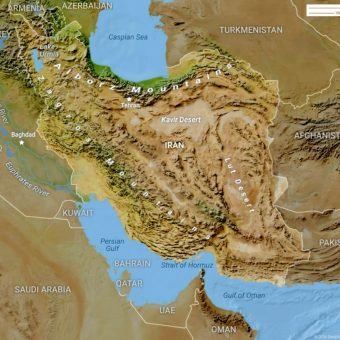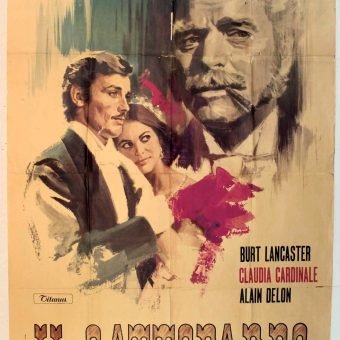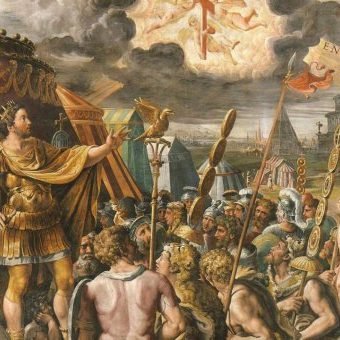A Song, from Debt during the Crusades
Michael Hudson is a prolific writer. He is already onto his next book dealing with Debt in the Crusades, while the previous one is hardly dry from the printers. We are exceedingly fortunate to get snippets of the new material, which is captivating.
This is a song that we all know. And if we do not know the song, we know the ditty, and of course, the rhythm is catchy and soon you tap your feet to it.
This is a story right from the crusades would you believe it? And would you believe it, this dark bloodthirsty Dark Ages, inquisitions and harsh punitive tones of the crusades, had its points of light as well. One can almost think of ‘democratic countries’ and supposed ‘autocratic countries’ in the modern version of an age-old story.
The Albigensian Inquisition is celebrated in the chart-topping ditty “Dominique,” popular throughout Europe in 1963-64, and by Debbie Reynolds in the 1966 movie The Singing Nun. Its lyrics open with: “In the age when John Lackland was the king of England, Our father, Dominix, fought the Albigensians.” (Lyrics below) The Dominicans were often referred to as the Preaching Order and worked closely with the papacy.
Canon 3 of Lateran IV upheld the council of Avignon (1209) endorsing the Albigensian Crusade (1209-1229) against the Cathars in Southern France, a prosperous region extending westward to Catalonia in Moorish Spain. The Arab trade traversing it in the 11th and 12th centuries had brought a cultural intermixing that produced the poetry of the troubadours. It also brought a dualistic Gnostic view of worldly greed and selfishness, related to the Bogomils (a 10th-century Bulgarian sect) and a similar reaction from Asia Minor against worldly wealth, rejecting ecclesiastical as well as secular authority.
Languedoc became the venue for creating the Inquisition at the hands of the Dominican Order. The Papal Dictates of 1054 gave popes the power to impose religious uniformity throughout Christendom by defining whatever they opposed as heresy, and the Inquisition’s initial aim was to destroy Catharist theology as a threat to papal authority. The destruction of Catharist and Bogomil writings prevents us from understanding just how their theology reflected their political attitudes and living conditions. What has survived is only what their detractors have written. The Treatise Against the Bogomils by Cosmas the Priest suggests a rebellious dualistic spirit familiar from North Africa’s Donatist revolts against Augustinian theology in the 4th and 5th centuries to Europe’s peasant revolts from the 14th to 16th centuries: “They teach their followers not to obey their masters; they scorn the rich, they hate the Tsars, they ridicule their superiors, they reproach the boyars, they believe that God looks in horror on those who labour for the Tsar, and advise every serf not to work for his master.”
It is not hard to see here an anti-authoritarian attitude of the common folk characterizing the oppressive power of State and Church as the work of the devil ruling the material world. How could the Lord have let the world become so unfair, if not opposed by a Satanic adversary in a constant fight?
Dominic
Versions: #1#2#3
Dominic, Nic, Nic
Nic, goes along very simply
Traveling in poverty and singing.
On every road, in every place,
He just talks about the Lord,
He just talks about the Lord.
In the age when John Lackland
Was the king of England,
Our father, Dominix
Fought the Albigensians.
Dominic, Nic, Nic
Goes along very simply
Traveling in poverty and singing.
On every road, in every place,
He just talks about the Lord,
He just talks about the Lord.
One day a heretic
Led him through the brambles,
But our father, Dominic
By his own joy, converted him.
Dominic, Nic, Nic
Goes along very simply
Traveling in poverty and singing.
On every road, in every place,
He just talks about the Lord,
He just talks about the Lord.
Without a camel or a coach,
He traveled Europe on foot,
Scandinavia and Provence,
In saintly poverty.
Dominic, Nic, Nic
Goes along very simply
Traveling in poverty and singing.
On every road, in every place,
He just talks about the Lord,
He just talks about the Lord.
He inflamed with ardor
Boys and girls of every school,
And by sowing the Word
He founded the Brother Preachers.
Dominic, Nic, Nic
Goes along very simply
Traveling in poverty and singing.
On every road, in every place,
He just talks about the Lord,
He just talks about the Lord.
In the home of Dominic and his brothers,
Bread started becoming scarce,
And two angels presented themselves,
Bearing two great golden loaves.
Dominic, Nic, Nic
Goes along very simply
Traveling in poverty and singing.
On every road, in every place,
He just talks about the Lord,
He just talks about the Lord.
Dominic saw in a dream
The preachers of the whole world
Under the mantle of the Virgin
In great number assembled.
Dominic, Nic, Nic
Goes along very simply
Traveling in poverty and singing.
On every road, in every place,
He just talks about the Lord,
He just talks about the Lord.
Dominic, my good Father,
Keep us simple and happy
By announcing to our brothers
The Way and the Truth.
Dominic, Nic, Nic
Goes along very simply
Traveling in poverty and singing.
On every road, in every place,
He just talks about the Lord,
He just talks about the Lord.
https://lyricstranslate.com/en/dominique-dominic.html
I would like to talk about the saintliness (or not) of poverty. And about traveling in poverty and singing. And about where that brought us as humanity. And why Bread becomes Scarce. But that is for another time. At this moment, let us just enjoy the history. Even in those long ago dark times, we, us, the people were savvy. We got it!
The Albigensian Inquisition is celebrated in the chart-topping ditty “Dominique,” popular throughout Europe in 1963-64, and by Debbie Reynolds in the 1966 movie The Singing Nun. Its lyrics open with: “In the age when John Lackland was the king of England, Our father, Dominix, fought the Albigensians.” https://lyricstranslate.com/en/dominique-dominic.html. The Dominicans were often referred to as the Preaching Order and worked closely with the papacy.
Edward Peters, Heresy and authority in medieval Europe: documents in translation (Philadelphia, 1980):108-116. For more discussion see S. Runciman, The Medieval Manichee: A Study of the Christian Dualist Heresy (Cambridge, 1947) and R. I Moore, The War on Heresy (London, 2012).











It’s ironical that the song portrays ‘Dominic’ as going “along very simply Traveling in poverty and singing” when the Cathars were in fact behaving in similar terms. “The Cathars originated from an anti-materialist reform movement within the Bogomil churches of the Balkans calling for what they saw as a return… Read more »
I respectfully disagree with professor Hudson on the Cathars. I once listed a lot of their evils in the old Saker site. They did have some positive aspects, but it was enshrouded in so much evil! I might have written it in an article by Batiushka. Yes the Inquisition and the Papacy… Read more »
Hi AHH, we get snippets of interesting bits – of Songs and poems of the time – the small wildflowers that push up between the stones. The topic here is debt during that time period and not necessarily who was evil or good.
But that’s precisely it! I agree most topics are in the gray zone. For the Cathars it may be reduced to good and evil. They may be a powerful exception and clearly part of a still relevant history. I wonder that is why Prof Hudson broached this?? The root of evil… Read more »
The Cathars were/are seen as evil because they were anti-establishment, and wanted to go back to the original teachings of Jesus, who said things like: “Therefore I say unto you, Be not anxious for your life, what ye shall eat, or what ye shall drink; nor yet for your body,… Read more »
Yes, this is laudable, and certainly informed part of the reason they are attacked. But we shouldn’t be deceived by pretty words on lips of the seemingly pious. Review their history — they were ruthless & took it too far. They were/are wolves in sheepskin. Proxies unleashed to collapse society.… Read more »
Many religious organisations are ruthless, and ‘take it too far’. Look at the Popes, the Inquisition, early Protestants, late Protestants (i.e. now, with whole-hearted support for WWI, WWII and the Ukraine), Jim Jones, the Moslem conquests, Hindu/Sikh/Moslem riots, even some Japanese Buddhist monks were warlike. It’s ironic that many of… Read more »
Jams mate 🙂 just my 2c 🙂 THERE IS … 1) what is forbidden to speak then there is … 2) what is permitted to speak for the chosen (not necessary human) then there is … 3) universal creation truth (ALL god’s common language) 4) transmitted msg (of particular god)… Read more »
“It is not hard to see here an anti-authoritarian attitude of the common folk…” Yes, yet we were taught nothing of this at school, learning only of the power of the nobles. A feature of this anti-authoritarian attitude can be seen in the bawdy humour of Chaucer’s Canterbury Tales, and… Read more »